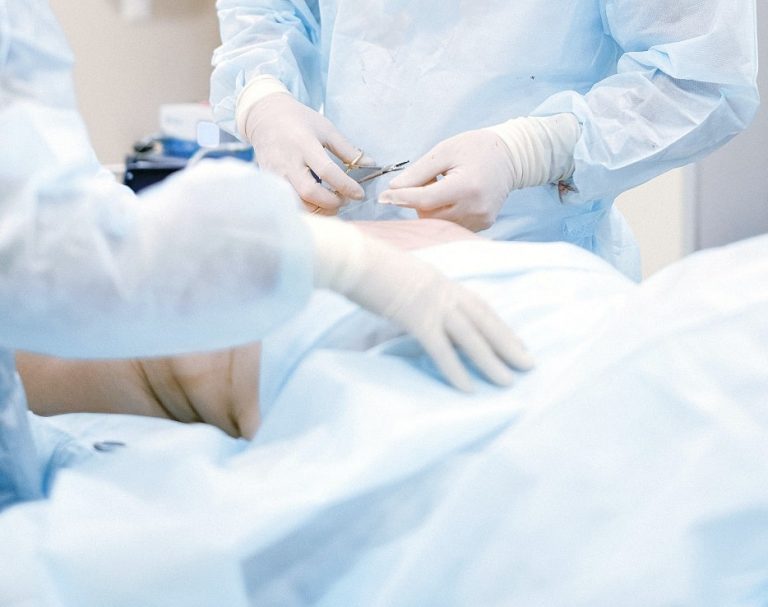The Medical Negligence Blog



Cauda Equina Syndrome claims for compensation
Cauda Equina Syndrome claims for compensation can be significant and require the particular expertise of Leading Medical Negligence Lawyers.
For eligible clients, we can represent you for a case on a No Win, No Fee basis. Talk to our team here now to find out if we are able to help you with free, no-obligation legal advice.

Delayed operation claims for compensation
Delayed operation claims for compensation could result in victims being eligible to receive thousands of pounds in damages for further pain, suffering and loss of amenity caused. Claim on a No Win, No Fee basis if eligible now.
Read on for some advice, but make sure to contact our team for free, no-obligation legal help about your circumstances to find out if we can represent you in a legal case today.

Hernia mesh compensation – No Win, No Fee
You could be eligible to pursue a hernia mesh compensation claim on a No Win, No Fee basis with our leading team here at The Medical Negligence Lawyers.
You could be owed thousands of pounds in compensation if it is the case that you have been the victim of negligence if we can prove that has been the case. It is quick and easy to get started to find out if we can help you by contacting our team for free, no-obligation legal advice here now.

Medical negligence claims for consultant errors
You could be eligible to pursue a medical negligence claim for consultant errors, and we may be able to represent you for a legal case on a No Win, No Fee basis.
As Leading Medical Negligence Lawyers, we want to help you as much as we can. Make sure to contact our team for free, no-obligation legal advice about pursuing a case here now.

Claim compensation for the negligence of a nurse
You can be eligible to pursue compensation on a No Win, No Fee basis for any negligence of a nurse that has caused an impact on you.
You could be eligible to recover thousands of pounds if you succeed with a medical negligence claim for compensation. This could cover any pain, suffering and loss of amenity caused, as well as covering any financial losses and expenses, if they are applicable.
Find out if you are entitled to pursue a clinical negligence legal case by contacting our team for free, no-obligation legal advice here now.

Claiming compensation for a fall in a hospital
An accident victim could be entitled to claim compensation for a fall in a hospital. Our leading team of Medical Negligence Solicitors may be able to represent you for a case on a No Win, No Fee basis.
We offer free claims assessments for anyone who may need our help. You can contact our team here now and we will happily advise you as to whether your situation is one that we can proceed with a case for you.

MHRA looking into increased intraocular pressure – EyeCee One
It is understood that the MHRA is looking into reports of increased intraocular pressure involving EyeCee One products, with a device safety information notification issued at the start of the year.
This matter is, of course, a particularly serious investigation given the potential consequences of vision loss for patients if something has gone wrong. It is understood that the underlying causes of the potential problems have yet to be identified, but we expect that a thorough investigation will be completed by both the manufacturer and the MHRA.
Anyone who has suffered any adverse effects as a result of clinical negligence or product liability matters can talk to our team for free, no-obligation legal help here now.

When cancer treatment is delayed, the consequences for patients can be extremely severe, whether they involve prolonged pain or further spreading of the disease. As such, in cases where medical practitioners have caused unwarranted delays to treatment, and the patient’s health has consequently been negatively affected, there may be sufficient reason to make a medical negligence claim.
If you have suffered from worsened health due to delays in your cancer treatment, you should not have to face these complications without consequences for the doctors who have neglected to progress your treatment. We all know that the NHS has been under strain for several years and has been under increased pressure due to the coronavirus pandemic and resource restraints. However, this does not mean cancer treatment can be pushed to one side without repercussions.

Claiming compensation for failure to properly investigate
As patients, we trust that our doctors will do their utmost to look into our symptoms, reach an accurate diagnosis, and treat the condition accordingly. Unfortunately, lax or even prejudiced and dismissive attitudes can lead to a failure to properly investigate a medical matter, in which medical professionals may neglect to establish the source of a patient’s pains and problems.
Unfortunately, unfair biases can still sometimes exist in the healthcare sector, with some professionals failing to properly consider the correct course of treatment. In some of the worst cases, a failure to investigate a patient’s symptoms could cause significant damage to their health, leaving the real health problem completely ignored.
If you believe you have fallen victim to a medical breach of duty, and your health has suffered as a consequence, you could be eligible to make a medical negligence claim. Our specialist lawyers have proven experience in holding medical professionals to account for any harm they may have caused, which is essential if we are to ensure the future safety of patients, and if we are to achieve justice for those affected.

Make a claim for paramedic negligence
When we call an ambulance, we are expecting urgent, high-quality care for a healthcare emergency. In the few minutes when paramedics first arrive, they need to make important decisions about the needs of the patient, aiming to stabilise their condition and decide whether they need hospital care. The role of a paramedic is a high-pressure one, but that does not excuse errors in the care that they provide. Where emergency care has failed you or a loved one, causing health complications, you may be eligible to make a claim for paramedic negligence.
Paramedics are specialist medical professionals, so we have a right to expect high-quality treatment from them, just as we would from our doctors. This means that lapses in the standard of care they provide must be taken seriously, and can be accounted for in medical negligence claims.
If your health has been compromised due to the errors or neglect of a paramedic, it is important to seek guidance about your rights. As an experienced and specialist firm of medical negligence lawyers, we can offer free, no-obligation legal advice to anyone who has faced medical injustice Read More

Proving your medical negligence case
Proving your medical negligence case to allow you to recover damages for any pain, suffering and loss of amenity caused is important and requires expert legal representation.
As Specialist Medical Negligence Lawyers, we may be able to represent you now on a No Win, No Fee basis for a legal case. Speak to our team here now for free, no-obligation legal advice to find out if we can help you today.

Claiming compensation for midwifery negligence
Anyone who has been affected by midwifery negligence could be entitled to claim compensation, and our leading team of medical negligence lawyers could represent you now, No Win, No Fee.
In some of the worst cases, negligence in this kind of setting could lead to people suffering permanent problems and complications, including children who may suffer for the rest of their lives. It is important that anyone affected by an issue such as this is entitled to seek the justice they deserve, and it is our role as specialist clinical negligence lawyers to fight hard for your right to justice.
You can speak to our team for free, no-obligation legal advice and we can conduct a comprehensive claims assessment for you.